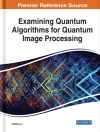As we enter the third decade of the World Wide Web (WWW), the textual revolution has seen a tremendous change in the availability of online information. Finding inf- mation for just about any need has never been more automatic—just a keystroke or mouseclick away. While the digitalization and creation of textual materials continues at light speed, the ability to navigate, mine, or casually browse through documents too numerous to read (or print) lags far behind. What approaches to text mining are available to ef?ciently organize, classify, label, and extract relevant information for today’s information-centric users? What algorithms and software should be used to detect emerging trends from both text streamsandarchives?Thesearejustafewoftheimportantquestionsaddressedatthe Text Mining Workshop held on April 28, 2007, in Minneapolis, MN. This workshop, the ?fth in a series of annual workshops on text mining, was held on the ?nal day of the Seventh SIAM International Conference on Data Mining (April 26–28, 2007). With close to 60 applied mathematicians and computer scientists representing universities, industrial corporations, and government laboratories, the workshop f- tured both invited and contributed talks on important topics such as the application of techniques of machine learning in conjunction with natural language processing, – formation extraction and algebraic/mathematical approaches to computational inf- mation retrieval. The workshop’s program also included an Anomaly Detection/Text Mining competition. NASA Ames Research Center of Moffett Field, CA, and SAS Institute Inc. of Cary, NC, sponsored the workshop.
สารบัญ
Clustering.- Cluster-Preserving Dimension Reduction Methods for Document Classification.- Automatic Discovery of Similar Words.- Principal Direction Divisive Partitioning with Kernels and k-Means Steering.- Hybrid Clustering with Divergences.- Text Clustering with Local Semantic Kernels.- Document Retrieval and Representation.- Vector Space Models for Search and Cluster Mining.- Applications of Semidefinite Programming in XML Document Classification.- Email Surveillance and Filtering.- Discussion Tracking in Enron Email Using PARAFAC.- Spam Filtering Based on Latent Semantic Indexing.- Anomaly Detection.- A Probabilistic Model for Fast and Confident Categorization of Textual Documents.- Anomaly Detection Using Nonnegative Matrix Factorization.- Document Representation and Quality of Text: An Analysis.












